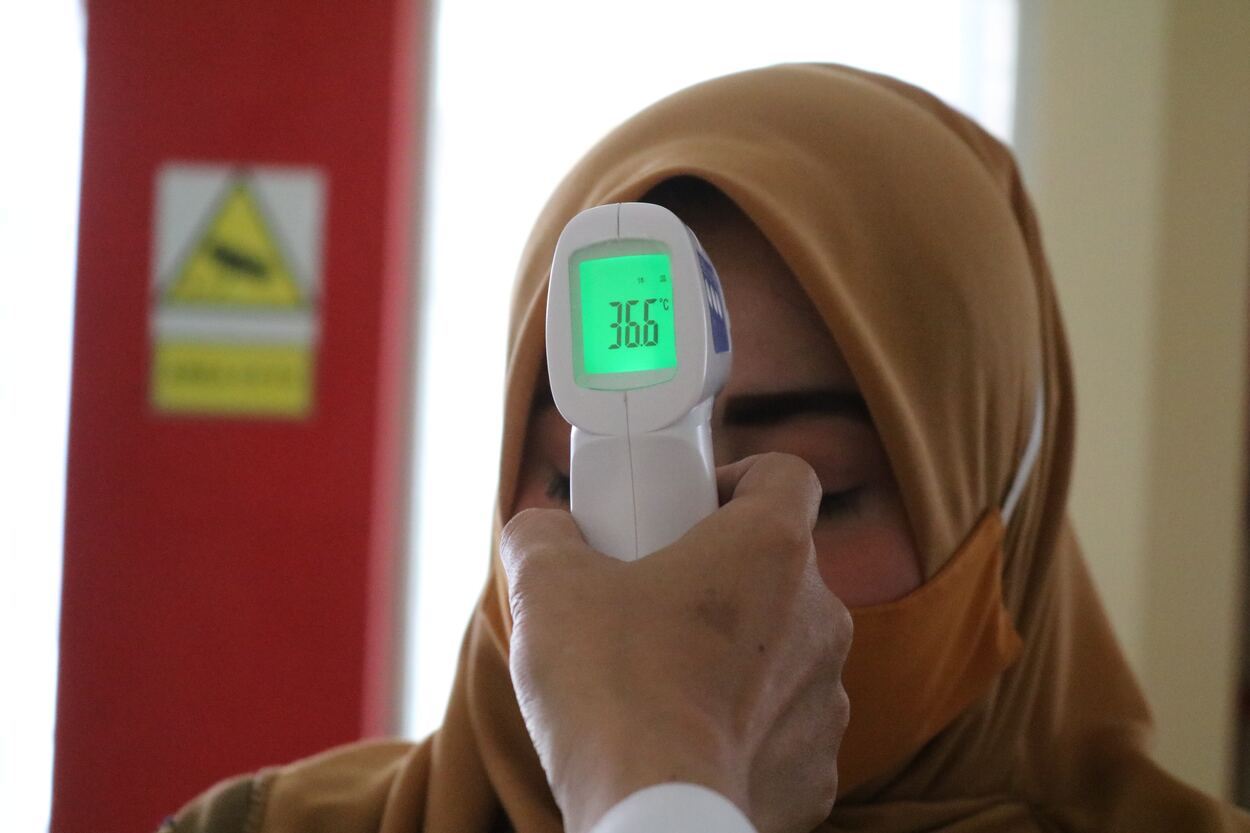Going to sleep all prepared for an important day ahead but feeling feverish in the morning after waking up from sleep is really annoying and troubling.
A fever has four types: low-grade fever, moderate fever, high-grade fever, and hyperpyrexia. These fever ranges from normal conditions to the worst states a person can be in. Even a moderate fever is life-threatening in some cases.
A low-grade fever early in the morning can be a cause of an infection or some medicine or stress.
It is often that a fever that is getting its way through your system in the daylights spreads inside through the night. Ever thought about why the fever gets worse at night? The reason for this increase is cortisol and its link to the immune system.
In broad daylight, the cortisol level is higher than it is at night which means that the immune system works better in the day as compared to night. Hence, the body combats fever well in broad daylight and the fever increases in the middle of the night.
As there is more than one reason, symptom, and treatment of a fever, please consult a healthcare provider for a professional opinion.
This article will give you a general inside of the fever that you get after waking up from sleep. So, let’s read out!

Why Do We Get Fever After Waking Up From Sleep?
Fever occurs due to infections in our body. It is the fight between those infections and our immune system that causes fever.
This is why medical practitioners do not give medicines for fever quickly. Nonetheless, here are some reasons why one gets a fever after waking up from sleep.
- According to the circadian rhythm of the body, the temperature starts from its lowest point in the morning, which rises eventually.
- Sleeping throughout the night can make a person dehydrated, which can be a reason for the warmth you feel after getting up from sleep.
- There is no one definite time for the infection to start its work inside your body. Sometimes infections start doing their business at night, and when you wake up, a surprise fever waits for you.
- Some medical condition causes fever as a symptom and this symptom can occur anytime.
- Also, some medicines can leave you feverish as a side effect. Though those medicines work to get their job done, they leave the patient warm and in fever.
- The body’s immune system often responds to anxiety with a fever and if you were dreaming about something stressful too, rest assured that the fever is due to all the stress you had during the day and while at sleep.

Symptoms of Fever
A fever always has an underlying cause. It is not that one day, the body thought, let’s make this person feel warm while all the body aches.
There are symptoms of fever that help understand the real cause of the rising body temperature. Let’s see what those symptoms are.
- Heightened body temperature is the first and foremost clear sign of a fever. A temperature above 100.4°F is considered a fever.
- Fever leads to headaches and muscle aches. The more serious the fever is, the more your whole body will be in pain.
- When the temperature starts rising, the body starts shivering and gives you a chill.
- Even if you are a die-hard foodie, you are going to lose that urge to even have a bite of your favorite food. That is what fever does to a person.
- Also, with a fever, you lose important minerals from your body and get dehydrated.
- The loss of appetite and dehydration makes the person feel weak and irritated with everything.
- fever also brings cold along with it, and you get sore through coughing, sneezing, and congestion in response.
- Nausea and fever are also common in people who have a fever.
- Due to weakness, the heart rate changes and increases a bit.
Always be aware of your health condition to rule out serious dangers and regrets later.
Causes of Fever
There are some causes for fever. Check out the data table to learn them.
| Causes of Fever | Kind |
| Infection | Bacterial infection, fungal infection, parasitic infection, influenza, stomach infection, Covid, mononucleosis, HIV, and respiratory infection. |
| Illness Related to Heat | Heat exhaustion, heat stroke, and heat cramps. |
| Cancer | Malignant Melanoma, Bone and Soft Tissue Sarcomas, Renal Cell Carcinoma, Carcinoid Tumors, and Lymphoma. |
| Medication | Antiepileptic, Anti-inflammatory, Antibiotics, Antipsychotic, Antrheumatic, Antidepressant, Chemotherapy, and Chemotherapy. |
| Inflammatory Disorder | Rheumatoid Arthritis, Bowel Disease, Systemic Lupus Erythematosus, Vasculitis, Ankylosing Spondylitis, Still’s Disease, Behçet’s Disease, Polymyalgia Rheumatica and more. |

Treatment of Fever
Fever is a fight between an infection in the body and the body itself. This is why doctors avoid treating it immediately, but the fever needs treatment eventually.
Understand the cause that is causing the fever. In identifying this, the patient needs to take a closer look into the day and the patient’s response to the day’s activities to identify other symptoms occurring along with fever.
Only after understanding the main cause of concern can you treat the fever. No matter what the issue is, keep yourself hydrated unless you have hyponatremia. Consume at least 1 to 2 liters of liquid in any way, but water is preferable.
Take rest! You do your work round the clock, but with a fever, you deserve some rest. Otherwise, the situation can get worse too. Do not be too quick to take a medicine. However, take a painkiller for the unbearable pain. If you feel the fever is persistent, consult a doctor for proper medication.
Take warm baths to kill the bacteria from the outside, and wear loose and comfortable dresses. If need be, use cool compressors to cool the heat down. Also, avoid alcohol and other additives to get well soon.
Check out the video to learn how to treat a fever:
Conclusion
- Fever is a fight between the immune system and the infection inside the body, which is why doctors do not treat fever immediately.
- People often wake up to a warm and feverish body. This is due to the circadian rhythm of the body, the fact that the body gets dehydrated, infections attack in the night, weaker immune systems at night, and certain medical conditions.
- Fever can bring along body and headaches, weakness and fatigue, sore throat and cough, and warmer body and nausea.
- The main cause can be a viral infection or a fever. However, a medicine’s side effects and certain medical conditions can make a person feverish, too.
- Staying hydrated, take rest, gulp a pain killer, take warm baths, use a cooling compressor, and cut yourself some slack.
- Consult a medical practitioner if the problem persists.
